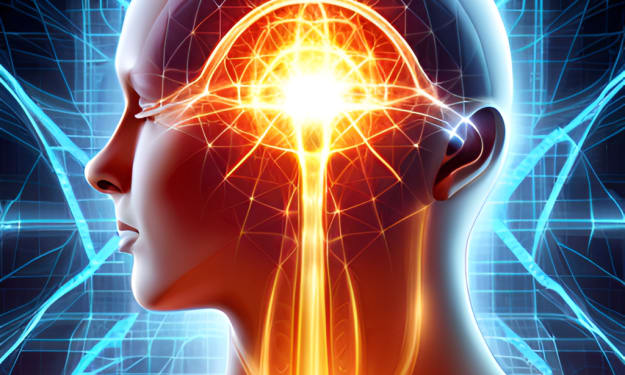
Few books have shaken my fundamental assumptions about the nature of reality more profoundly than Dr. Joe Dispenza's fascinating exploration of the placebo effect in his book The Placebo Effect. Through meticulous scientific research and astute philosophical insight, Dispenza dismantles the illusion that our physical bodies inhabit a purely objective material realm. Instead, he reveals the mind's incredible power to actively shape external reality through focused intention and belief. After reading this book, I can never look at the world the same way again.
At the heart of Dispenza's thesis lies the mysterious phenomenon of the placebo effect. As he comprehensively demonstrates through various clinical studies, placebos alone have the potential to alleviate pain, heal injuries, and even cure serious illnesses when a patient believes the inert substance has medicinal properties. The implications are earth-shattering: the mind can override the body's biological programming and stimulate healing independently of any physical intervention. Suddenly, our perception of reality as concrete and external gives way to an understanding that our mental states actively generate our physical experiences. As Dispenza notes, pure belief can make our bodies better.
Yet the ramifications stretch beyond medicine into every arena of life. If belief and focused intention alone can heal the body, even potentially altering genetic expression, then what other supposedly immutable aspects of external reality can our minds mold through sheer willpower? Dispenza cites case studies of Buddhist monks lowering their body temperatures through meditation and yogis consciously manipulating their heart rate and metabolism, indicating that the placebo effect applies to an array of bodily functions we take for granted as automatic. Our minds, he proposes, are not helpless observers of physical processes outside conscious control. Rather, our every thought and emotion exerts real, tangible influence on the tapestry of reality.
This revelation resonates deeply with my own life experiences. I, too, have witnessed the power of belief to bend the laws of probability in inexplicable ways. I think of lucky charms or visualization rituals enhancing performance in various domains, from athletics to academics. On a personal level, adopting a fiercely positive mindset when I was injured and unable to walk did seem to accelerate my recovery beyond expected timelines. Dispenza's work provides a compelling explanatory framework, rooting such anecdotes in the concrete mechanics of the placebo effect. If focused belief alters biomolecular signaling and activates self-healing physiological resources, who is to say these principles don't scale up to shape reality in other contexts, such as bringing desired opportunities to fruition or attracting advantageous coincidences?
Indeed, Dispenza takes his thesis to an even more revolutionary level, suggesting that mastery of the placebo effect not only allows us to shape reality around current circumstances but can unlock the mind's latent capacity to transcend the everyday fabric of time and space altogether. He recounts seemingly implausible anecdotes of placebo recipients becoming clairvoyant or intuiting future events in their dreams. Could focused intention act as a key to unleashing dormant transcendent powers of consciousness, elevating perception to realms beyond everyday physical existence? The staggering implications left me reeling.
Yet for all its defiance of consensus reality, Dispenza's account remains firmly grounded in rigorous facts. Modern neuroscience reveals how the placebo effect taps into the brain's natural mechanisms of neuroplasticity, forging new neural pathways through repetition that can override biochemical signaling from the body. Imaging studies show the placebo response inhibiting the activation of pain centers in the brain, providing a plausible scientific basis for how pure belief can yield therapeutic benefits. Quantum physics explains the mind the through bizarre phenomenon of “observer effects,” where conscious observation seems to collapse possibility waves into tangible experienced reality. Maybe the mystical placebo effect has foundations just as concrete as the law of gravity after all.
By illuminating such extraordinary yet methodically substantiated potentials of the mind, Dispenza's work carries profound philosophical implications that force me to re-conceptualize my fundamental assumptions about the nature of existence itself. Rather than fixed and objective, reality seems more akin to a collaborative illusion sustained by collective belief, with conscious minds as active participants in generating the emergent cosmic tapestry. As biological anthropologist Terrence Deacon suggests, perhaps sentience breathes life into the material world rather than the reverse.
This paradigm shift bears tremendous existential opportunities. If reality proves far more pliable to willful consciousness than initially presumed, then what heights of creative manifestation might be focused intention achieve? Perhaps limiting beliefs about what is possible constrict our innate capacities, abilities Dispenza shows can bloom through practices like meditation that tap into deeper powers of mind. To what extent can we transcend our biological programming, consciously evolving our bodies, relationships, and external circumstances through precise intention? Might focused belief allow us to play jazz with the matrix of reality?
Yet profound opportunities carry equal risks. The placebo effect also reveals darker potentials of the mind. Dispenza shows how the nocebo effect—negative beliefs and expectations—can harm health, essentially wielding the placebo response for harm rather than healing. Beyond medicine, collective pessimism and fatalistic beliefs may constrain human progress across issues from poverty to climate change, creating self-fulfilling prophecies of doom. Thus, a greater understanding of these mental forces entails tremendous moral responsibility. How might we collectively harness intentionality for human betterment, creating more uplifting, empowering narratives about our present possibilities and constraints?
In the end, Dispenza's phenomenal book leaves me deeply humbled by the staggering creative powers of consciousness. Yet this knowledge also carries immense hope. By better understanding the hidden workings of mind and matter, perhaps we can consciously shape reality into something resembling heaven on earth, manifesting more Positive constructive collective stories that unlock our species' fuller potential. The placebo effect pulls back the curtain on abilities long dismissed as paranormal, unveiling profound metaphysical truths: that our thoughts and beliefs do not merely represent the world, but instead actively participate in calling it into being. In this light, Dispenza's work offers a blueprint to recreate society and existence itself from the fertile ground of consciousness. The possibilities stretch as far as our belief allows.
About the Creator
Neos Alth
Adding to the realm of neural divergence and encouraging the fringe community to realize the inherent gift.






Comments
There are no comments for this story
Be the first to respond and start the conversation.